Injection molding is an incredibly versatile manufacturing process for making consistent and durable plastic parts, high speed and very low unit cost. The best plastic materials for injection molding can be:
- Nylon
- ABS plastic
- Polycarbonate (PC)
- PC-ABS plastic
- Acetal Copolymer
- Acetal Homopolymer
- Engineered Thermoplastic Polyurethane (ETPU)
- High Density Polyethylene
- Liquid-crystal polymer
- Low-density polyethylene
- Linear low-density polyethylene
- Acrylic (PMMA)
- Polystyrene (PS)
- Polypropylene (PP)
- Polyether Ether Ketone (PEEK)
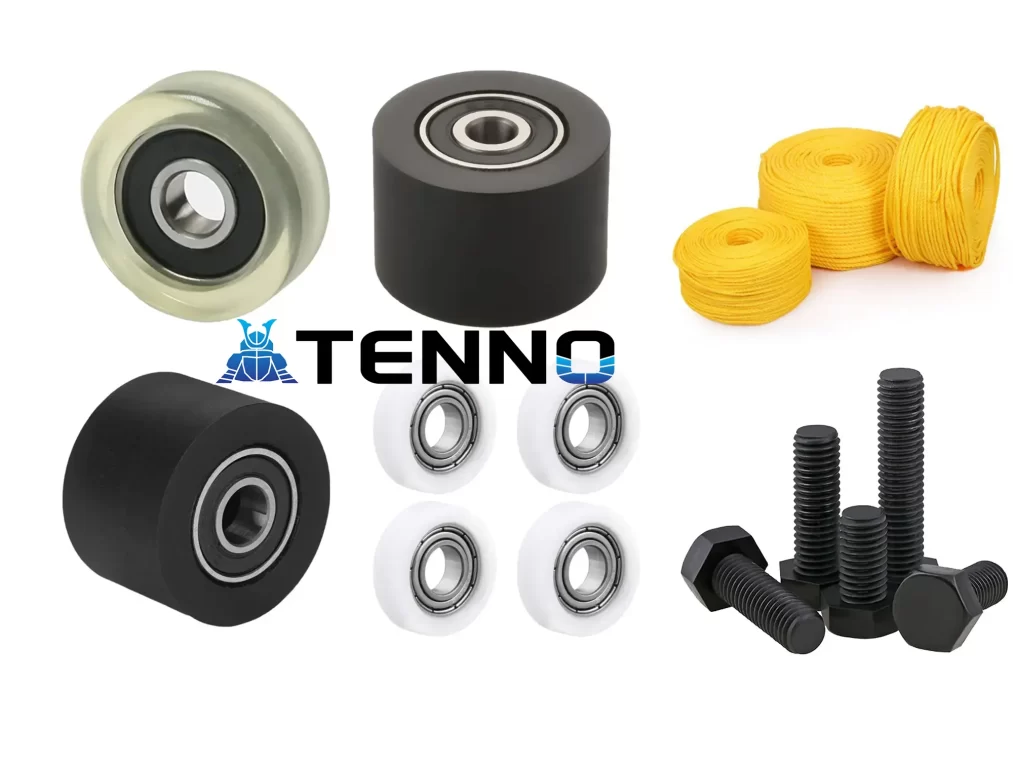
Nylon
Nylon is a family of synthetic polymers. It is a thermoplastic, silk-like, white or colorless, typically made from petroleum. Nylon polymers can be melt-processed into fibers, films, or shapes for many applications. Engineering-grade nylon is processed by extrusion, casting, and injection molding.
Typical applications of Nylon include: fabric and fibers, wear pads, guide wheels, and slide bearings. Other Nylon applications include: high-ware parts, quick-release buckles, molded parts for cars, gears, and hand cranks. Although Nylon is a strong plastic, it absorbs water and is therefore not the ideal choice for marine applications.
ABS plastic
ABS (acrylonitrile butadiene styrene) is a high-strength engineering plastic. It’s durable, lightweight, tough, has good dimensional stability, resists impacts and scratching, and is hard to break. ABS is a good insulator and doesn’t conduct electricity or give off fumes if exposed to fire.
ABS’s light weight and ability to be injection molded and extruded make it useful in manufacturing products such as electronics, phone adaptors, keyboards, phone hardware, wall socket plastic guards, LEGO bricks, drainpipe systems, and kitchen appliances. When extruded into a filament, ABS plastic is a common material used in 3D printers.
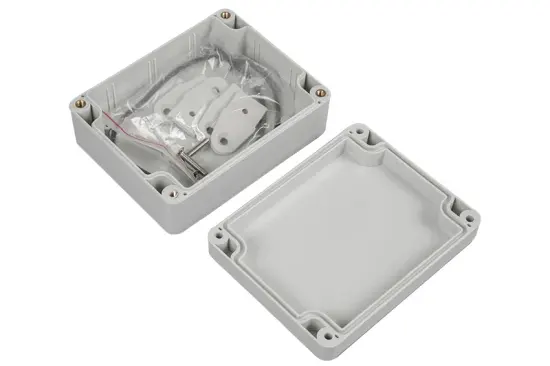
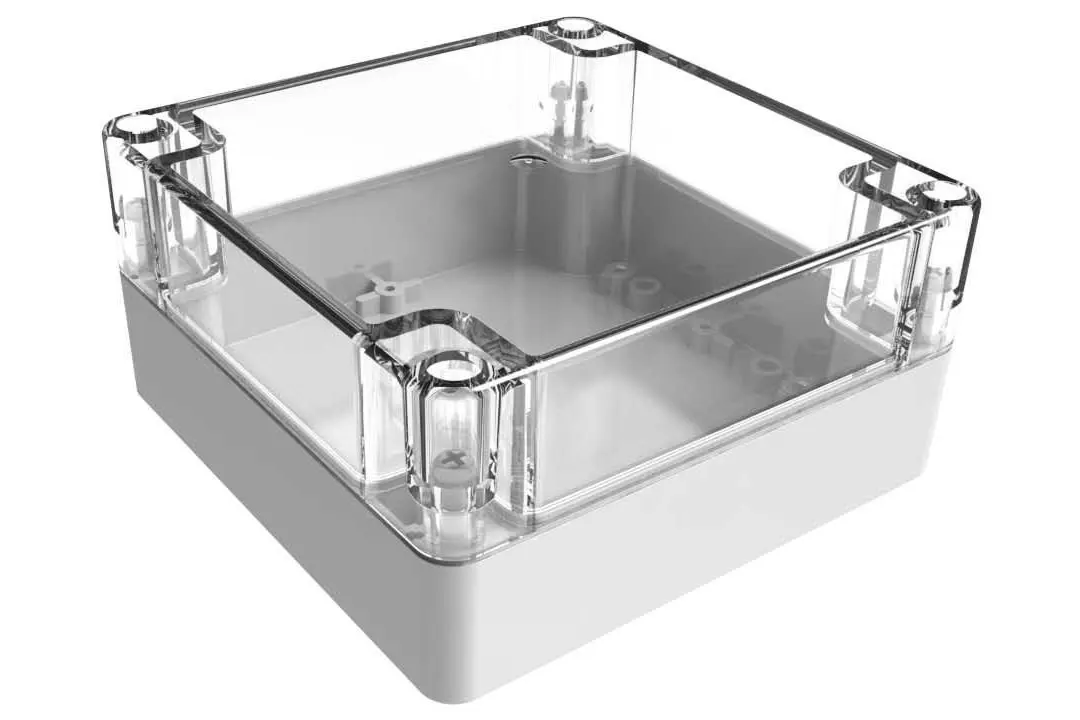
Polycarbonate (PC)
Polycarbonate is a group of thermoplastic polymers. They are a high-performance, transparent, engineering-grade materials that can be used in higher temperature environments, due to its relatively high melting point (155°C). Polycarbonates are easily worked, molded, and thermoformed. Injection-molded polycarbonate can produce very smooth surfaces.
The common uses of Polycarbonate (PC) include: safety helmets, automotive headlamp lenses, lighting lenses, sunglass/eyeglass lenses, swimming goggles and SCUBA masks, and safety glasses/goggles/visors, bullet-proof glass, phone cases, instrument panels, equipment housing, automotive parts, electrical connectors, and electrical insulators.
PC-ABS – Polycarbonate Acrylonitrile Butadiene Styrene
Polycarbonate-acrylonitrile butadiene styrene or PC-ABS is a thermoplastic composite from a blend of PC and ABS. This material has high strength, high stiffness, high heat resistance, and high impact resistance, even at low temperatures. In addition, PC-ABS holds its dimensional stability over time, and its enhanced flow characteristics and processability make it easy to work with.
Via injection molding, PC-ABS is used in the automotive and electronics industries, these products include glove boxes, knee bolsters, overhead and middle consoles, and blow-molded seatbacks. It is also used to manufacture many popular consumer electronics, including laptop monitor enclosures, TV frames, phone exteriors, and parts of portable hand-held devices.
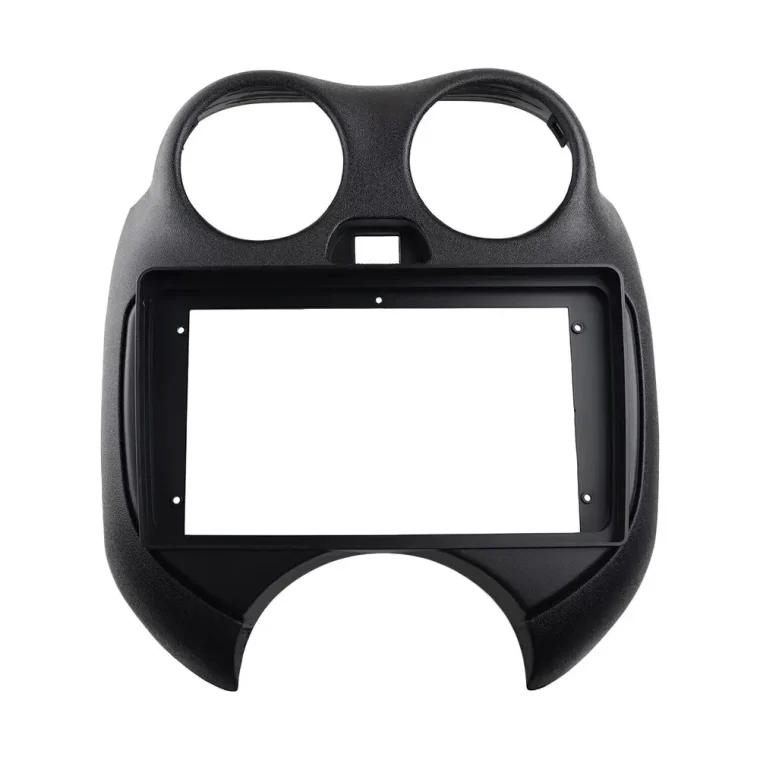
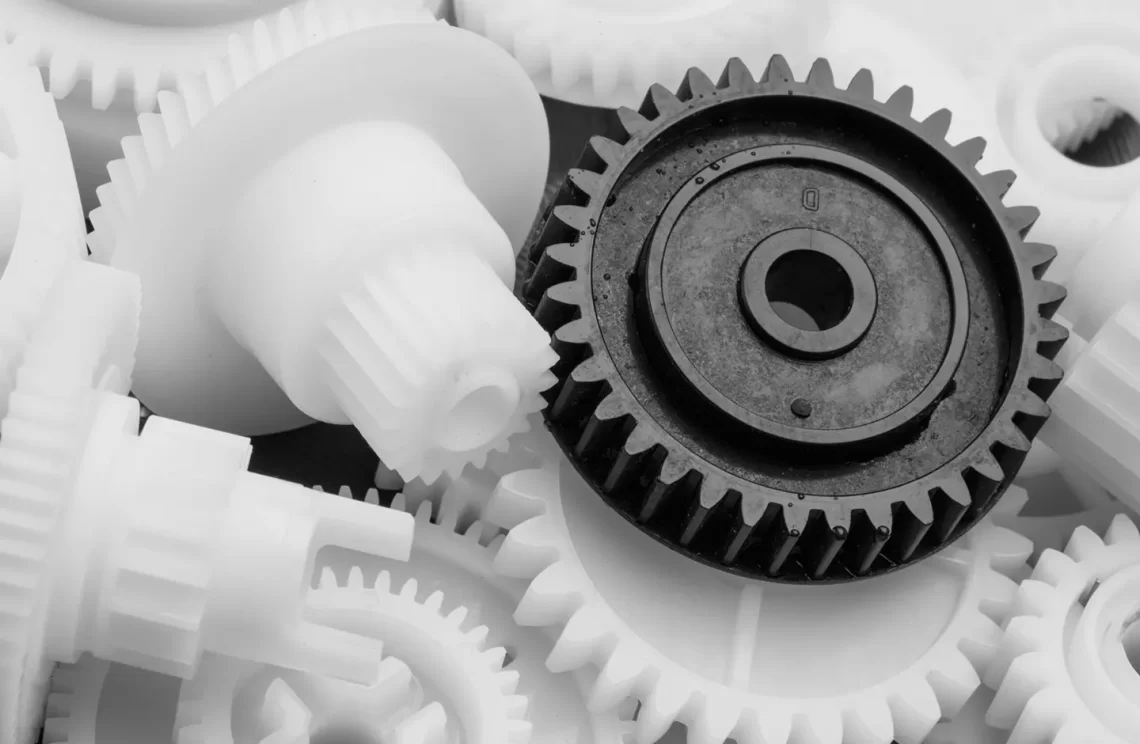
Acetal Copolymer
Acetal Copolymer is an engineering thermoplastic, also known as polyoxymethylene, polyacetal, and polyformaldehyde, used in precision parts that require low friction, high stiffness, and excellent dimensional stability.
It is characterized by its high strength, hardness and rigidity to −40°C. Acetal copolymer is used in applications that require strength, low moisture absorption, creep resistance, and dimensional stability. Typical applications for injection-molded Acetal copolymer include high-performance engineering components such as rollers, bushings, wear strips, ball bearings, small gear wheels, eyeglass frames, ball bearings, ski bindings, fasteners, gun parts, knife handles, gas meters, medical technology, aerosol valves, fuel tank modules, and lock systems.
